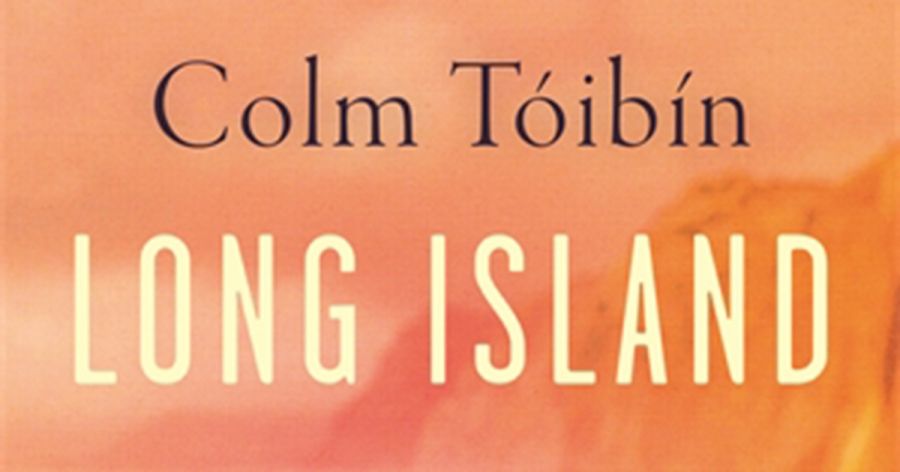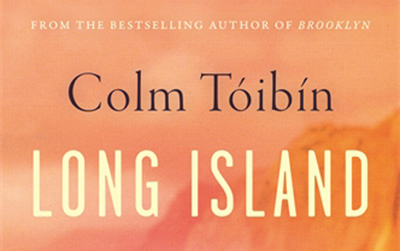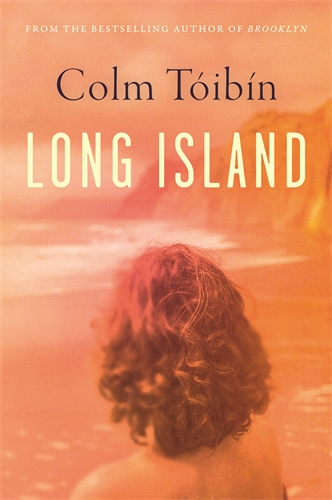
- Free Article: No
- Contents Category: Fiction
- Review Article: Yes
- Article Title: Cul-de-sac
- Article Subtitle: Colm Tóibín returns to Enniscorthy
- Online Only: No
- Custom Highlight Text:
Enniscorthy, a town in County Wexford, was Colm Tóibín’s birthplace in 1955. His father was a schoolteacher and local historian. Martin Tóibín died young, when Colm was twelve, an early loss explored in Tóibín’s novel Nora Webster (2014), in which the eponymous widow’s son Donal is likewise twelve and a stammerer. In 2009, Tóibín published Brooklyn, which moves between Enniscorthy and New York City. The very modesty of Tóibín’s middle-class settings and characters – their constrained lives, village absorptions, small defeats – could not obscure Tóibín’s subtle artistry or his forensic interest in psychology, especially that of his women, many of whom are so complex, so contradictory, as to make the male characters seem extraneous, unimaginative, stolid.
- Featured Image (400px * 250px):

- Alt Tag (Featured Image): Peter Rose reviews ‘Long Island’ by Colm Tóibín
- Book 1 Title: Long Island
- Book 1 Biblio: Picador, $34.99 pb, 292 pp
- Book 1 Cover Small (400 x 600):

- Book 1 Cover (800 x 1200):

Now Tóibín returns to Enniscorthy with the sequel to Brooklyn. Any sequel is hard to pull off, especially when the original novel has been filmed to wide acclaim, as Brooklyn was in 2015 (John Crowley the director), with the excellent Saoirse Ronan as Eilis Lacey and some exceptional cameos, including Brid Brennan’s chilling turn as the malevolent shopkeeper Miss Kelly.
It was Miss Kelly’s mischievous gossip that upheaved the first novel and denied Eilis an alternative happiness with Jim Farrell. Eilis had gone back to Enniscorthy to console her widowed mother following the sudden death of her sister. Eilis’s renewed acquaintance with Farrell, whom she knew as a girl, leads to romance and talk of marriage – until Miss Kelly learns that Eilis was recently married to an Italian boy in Brooklyn. To avert scandal and the indignation of the Fiorello family, Eilis must hurry back to America and resume her first conjugal destiny, with its fond, ominous talk of a dream house on a new estate on Long Island. She flees Enniscorthy with the precipitateness that often overtakes Tóibín’s main characters at crucial moments. Sitting on the train to Wexford, Eilis imagines her mother’s words: ‘She has gone back to Brooklyn.’
Eilis imagined the years ahead, when these words would come to mean less and less to the man who had heard them and would come to mean more and more to herself. She almost smiled at the thought of it, then closed her eyes and tried to imagine nothing more.
Closing her eyes, her mind perhaps – trying to conjure a nullity – has served Eilis passably well during the twenty years that have elapsed since those convulsive events. The marriage to Tony Fiorello was quietly resumed, without incident. They now have two grown children, brilliantly drawn (Tóibín is good at children). Reasonably prosperous, they live in a cul-de-sac with four houses, all occupied by the Fiorellos (Eilis thinks of it as an ‘enclosure’). If one of her daughters-in-law goes for a walk, Francesca, the matriarch who lives opposite, asks them where they went, and why. The weekly Sunday lunches en famille are an ordeal for Eilis. She knows she is intelligent, better-read, good-looking. ‘It struck Eilis as strange how little they all knew about her, but she told them nothing.’
She is also a Democrat (she begins to feel American when she votes against Richard Nixon). One day she argues with Tony’s father about Vietnam and the nobility of military service. This, of course, is infra dig. The father-in-law has never quite learned how to pronounce her name. Eilis has put so much behind her she seems at an odd angle to herself.
Tóibín often resorts to domestic breaches or cataclysms, as if to illustrate the brittleness of our social arrangements. The new novel opens with a visit almost Verdian in its brutality and vengefulness. A local Irishman tells Eilis that Tony, who is a plumber, has impregnated his wife and that when the brat is born he will having nothing to with it and will deposit it right there on the Fiorellos’ doorstep. All this is conveyed in a first chapter of impressive concision and intensity.
How Eilis responds to this unexpected news (this is Tony’s first infidelity, or so he assures her) – what she chooses to do, or not to do – lies at the heart of this sinuous, quietly excruciating novel. Having determined from the outset that she will have nothing to do with Tony’s child (‘It’s your business, not mine’), and having endured the intrigues of the Fiorellos (who are much more forgiving and accommodating, and rather pleased to have a new baby in the cul-de-sac), she elects to return to Ireland for the first time in twenty years – for how long she cannot say.
What an interestingly unhappy protagonist Eilis becomes in the process. How much she has left behind, occluded. We are reminded of psychological clues in Brooklyn: her acute homesickness and desolation when she is persuaded to leave Ireland soon after her sister’s death. Her way of coping with the estrangement from everything she has known, loved – ‘the life she had lost and would never have again’ – is to put it out of her mind.
Following the Irishman’s visit, Eilis is strangely affectless, almost paralysed. As she absorbs the news, ‘[f]or a second she wished there was somewhere she could go, a place where she would not have to contemplate what had happened.’ She wishes she could undo the visit. But then, undoing or reversing the inconvenient past is a habit of hers.
This lack of affect seems contagious. When Eilis tells her daughter about Tony’s affair, Rosella says: ‘I wish I hadn’t heard this. I know that sounds stupid but that’s what I wish.’ Even Tony, the culprit, is oddly blithe, pretending nothing has happened, which may be taking Italian braggadocio too far.
There is a pattern here: throughout her adult life Eilis has craved solitude, namelessness:
In all her years with Tony, it was something she had often dreamed about, especially at the beginning of her marriage – slipping away, getting a train or even driving to some town and finding an anonymous hotel to spend two nights away from everyone.
Would it be going too far to suggest that there is a kind of Post-Traumatic Stress Disorder at work here – the polite, stoic grief of any diaspora? Tóibín may have planted a clue early in Long Island, when Eilis recalls a conversation with a Mr Dakessian, who tells her about the Armenian genocide. ‘“You’re Irish,” he said. “You’ll recognise it.”’
Only once is there a hint of rage or murderous potential in Eilis. As she spars with Tony in the kitchen, ‘[t]he idea that she was standing beside a drawer of knives gave Eilis pause for thought.’ And that’s all. It feels slightly gratuitous in this otherwise perfectly poised novel.
Once in Ireland after the domestic rupture, Eilis renews her association with family and old friends. She stays with her mother, May Lacey, such a formidable character, so moving at the end of Brooklyn when – heartbroken by Eilis’s sudden and unexplained flight from Ireland and the cessation of her romance with Jim Farrell – she refuses to farewell her daughter and stays in her room. Old age, loneliness, Enniscorthy perhaps, have not improved Mrs Lacey. She welcomes her daughter with churlishness and ingratitude. Mrs Lacey is stronger now, more determined, Eilis realises. She too has been cauterised, almost irritated by life. She is a kind of monster – just another disappointed snob in a village.
In Enniscorthy, Eilis stands out because of her poise, her tan, her wardrobe – the sheen of Americanness. She spends time with her old friend Nancy Sheridan, now widowed, and resumes her friendship with Jim Farrell, not knowing that he is conducting a secret affair with Nancy, who is desperate to escape from the revolting chip shop she is running. The intricacies of what follows – as Eilis and Jim contemplate a future together, and Nancy decides what to do – unfold with a kind of classic inevitability, demonstrating Tóibín’s narrative powers and his ability to balance satire and pathos.
The humour throughout is choice. When Eilis discovers the extent of the Fiorellos’ machinations, she asks Tony’s lawyer brother Frank, ‘Did you learn to talk like this at Fordham, or does it come naturally to you?’ Nancy, at a wedding, dances with a man who directs her ‘like a man driving a tractor’. Another woman is said to be ‘the only woman in Ireland who can wear grey’.
At the end, to secure her future Nancy acts brutally, in a spirit of ruthless realism. She asserts herself in ways Jim Farrell – oddly passive for a publican – has never been able to do. All he can do is put a question to Eilis about some notional future in America. He waits and waits for an answer, counting the seconds ‘until he got to a hundred and then two hundred’. Unexpectedly, the novel ends with this hurt, baffled, newly stubborn man.
Now we too must await the answer to Farrell’s question in the third novel that will surely follow – like the remorseless old widows in their laced attic bedrooms in Enniscorthy.


Comments powered by CComment